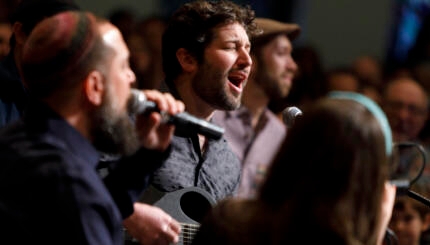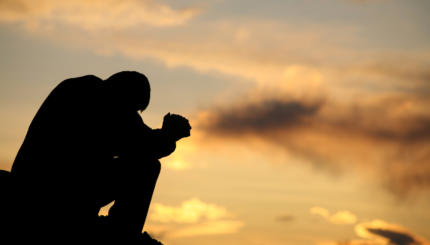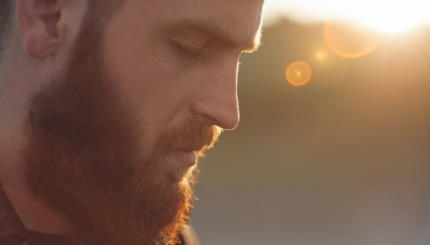Remember in summer camp when they did that trust and bonding activity where you had to fall back with your eyes closed and hope that everyone standing there would catch you? Even when you were sure they would, really letting yourself fall was hard. That’s because falling requires us to be totally vulnerable and, for a moment, completely reliant on others.
Yet that is what every healthy relationship needs. Perhaps the inability to fully trust and be vulnerable is at the core of why so many relationships fail?
We often define strength and courage as independence and not needing others. But the Jewish perspective is quite the opposite. Being able to ask for help and to accept it is not an expression of weakness, but rather of our humanity. We were created to need one another. We were created to connect.
And it is not just to one another that we need to bond, but ultimately and foundationally, to our Creator. Only when we can trust that we are never really alone in this world, that we are always loved and supported, are we stable enough to connect with others in a trusting way.

Help us keep Jewish knowledge accessible to millions of people around the world.
Your donation to My Jewish Learning fuels endless journeys of Jewish discovery. With your help, My Jewish Learning can continue to provide nonstop opportunities for learning, connection and growth.
This concept is at the root of the Ashrei prayer, which means “happiness.” The prayer is mainly a compilation of psalms (but mostly psalm 145) and is traditionally recited three times a day — twice in the morning and once in the afternoon. The Talmud even teaches us that one who recites Ashrei three times a day is guaranteed a place in the World to Come. A secure future is quite the promise for reciting this prayer.
So how does Ashrei show us how to be happy?
The prayer is organized alphabetically, with each verse corresponding to a successive letter in the Hebrew alphabet. Except for one. There is no verse for the 14th letter, the nun.
The Talmud suggests that the nun verse is unnecessary because it is covered by the following verse, which begins with the Hebrew letter samech: “God supports all who are fallen….” In Hebrew, the word for support, somech, begins with a samech, and the word for fallen, noflim, begins with a nun.
What is this really telling us?
One of the messages is that a recipe for happiness is knowing wholeheartedly that in our most challenging times we are not alone, that when we fall, we will be supported. And since that message is so hard to remember when we struggle, we say it three times a day, with a double dose first thing in the morning.
It’s not enough to say it once. It’s almost as if before we head out for the day, we need to repeat it. Say it again. Own it. And then, go out and impact that big world.
And then, after a long day, we say it again. We end our day with the reminder that we made it. And while it’s sometimes hard to see, God has our back.
Like all prayers, Ashrei isn’t said because God needs to hear it, but because we need to hear it. We need to believe it. We need to internalize it. And when we do, when we realize that if we fall we will always be caught, then we can move forward with determination, inspiration and gratitude.
Read the complete text of Ashrei here.
Sara Esther Crispe is a writer, motivational speaker, and life and relationships coach. She is the founder of LuminStory.org and co-director of Interinclusion, an educational non-profit celebrating the convergence between contemporary arts and sciences and timeless Jewish wisdom. She lives with her family in Danby, Vermont, where they run experiential Jewish retreats.



